In today's fast-paced business world, staying competitive and efficient is crucial for any organization's success.
In today's fast-paced business world, staying competitive and efficient is crucial for any organization's success. This is where Enterprise Resource Planning (ERP) software comes into play. Implementing ERP software in your organization can revolutionize the way you manage and streamline various processes. This article explores the key benefits of adopting ERP software, focusing on how it can significantly enhance operations and boost productivity.
Understanding Enterprise Resource Planning (ERP)
Enterprise Resource Planning (ERP) refers to a comprehensive software system that integrates various business functions and processes into a unified platform. It allows organizations to manage and automate day-to-day activities, such as accounting, human resources, supply chain management, inventory control, and customer relationship management. ERP acts as a centralized hub that provides real-time data and facilitates smooth communication between different departments.
The Components of ERP
A typical ERP system comprises multiple modules, each catering to a specific business function. These modules can include finance, manufacturing, sales, marketing, procurement, and more. By utilizing a shared database, ERP ensures that all departments have access to accurate and up-to-date information, promoting collaboration and efficiency.
Why Implement ERP Software in Your Organization
Enhanced Data Accessibility and Visibility
One of the primary advantages of ERP software is the seamless flow of data across various departments. It eliminates the need for multiple databases and spreadsheets, reducing the risk of data duplication and errors. With real-time information readily available, employees can make informed decisions quickly, enhancing overall productivity.
Streamlined Business Processes
ERP systems streamline business processes by automating repetitive tasks. This automation not only saves time but also minimizes the chances of errors. From order processing to inventory management, ERP ensures that workflows are efficient and consistent, leading to improved customer satisfaction.
Improved Decision Making
Having a 360-degree view of your organization's operations empowers management to make data-driven decisions. ERP software provides insightful reports and analytics, enabling leaders to identify trends, detect bottlenecks, and capitalize on new opportunities. Informed decision-making can significantly impact profitability and growth.
Cost Savings and Efficiency Gains
Implementing an ERP system can lead to substantial cost savings in the long run. By optimizing processes, reducing manual interventions, and eliminating data discrepancies, organizations can cut operational costs. Moreover, improved efficiency translates to better resource utilization and reduced lead times.
Selecting the Right ERP System
Evaluating Business Needs
Before choosing an ERP system, it is essential to conduct a thorough analysis of your organization's requirements. Consider factors such as scalability, industry-specific functionalities, integration capabilities, and future growth plans. A well-suited ERP solution can offer tailored benefits to address your unique challenges.
Vendor Research and Selection Process
Research various ERP vendors and evaluate their offerings against your business needs. Look for a reliable provider with a track record of successful implementations and excellent customer support. Engage in consultations and demos to understand how the ERP system aligns with your organization's goals.
Successful ERP Implementation
Setting Realistic Goals and Expectations
ERP implementation is a significant undertaking, and setting realistic goals is crucial for success. Define clear objectives and expectations, and communicate them across the organization. Ensure that employees understand the benefits of the new system and actively participate in the transition.
Ensuring Proper Training and Support
Comprehensive training for employees is essential to leverage the full potential of ERP software. Provide ample resources and support during the implementation phase and beyond. Address any concerns or challenges promptly to maintain a smooth transition.
Managing Change Effectively
Adopting an ERP system often requires a cultural shift within the organization. Encourage open communication and collaboration among employees to ease the process of change. Create a change management plan that ensures buy-in from all stakeholders.
Measuring the Success of ERP Implementation
Key Performance Indicators (KPIs) to Track
To measure the success of ERP implementation, establish Key Performance Indicators (KPIs). These metrics can include improvements in productivity, reduced lead times, decreased error rates, and increased customer satisfaction. Regularly monitor and analyze these KPIs to evaluate the impact of the ERP system.
Continuously Improving ERP Usage
ERP implementation is an ongoing process. Encourage feedback from employees and stakeholders to identify areas for improvement. Regularly update and upgrade the ERP system to stay aligned with evolving business needs and technological advancements.
ERP Software in Pakistan
Addressing Specific Business Challenges
For organizations in Pakistan, implementing ERP software can be especially beneficial in addressing specific challenges related to financial management, supply chain logistics, and regulatory compliance. ERP provides a unified platform to tackle these issues efficiently.
Cultural and Organizational Adaptation
When introducing ERP software in Pakistan, organizations should be mindful of cultural and organizational factors that may influence its adoption. Proper training and support, along with open communication, can facilitate smoother integration.
Future Trends in ERP
Artificial Intelligence and Machine Learning Integration
As technology advances, AI and machine learning are becoming integral to ERP systems. Predictive analytics and data-driven insights can further enhance decision-making processes and automate routine tasks.
Cloud-Based ERP Solutions
Cloud-based ERP solutions offer greater flexibility and scalability, making them an attractive option for businesses of all sizes. The cloud allows for remote access, data backup, and seamless updates without the need for extensive infrastructure.
Conclusion
Implementing Enterprise Resource Planning (ERP) software is a strategic investment that yields numerous benefits for organizations. From streamlining processes and improving data visibility to enhancing decision-making and achieving cost savings, ERP significantly boosts operational efficiency. In Pakistan, ERP solutions can address specific business challenges and adapt to cultural nuances, making them a valuable asset for organizations in the country.
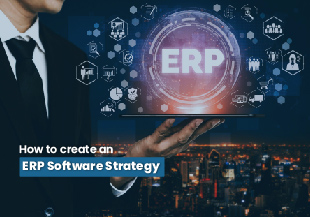

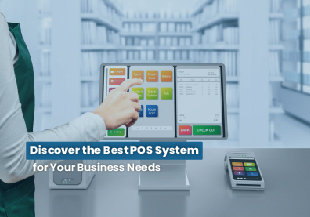
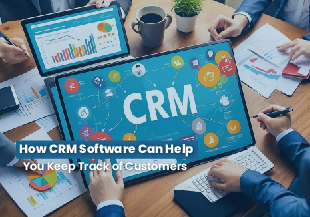
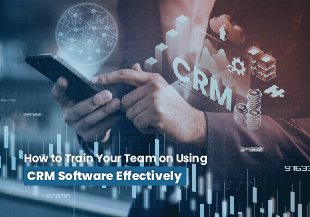
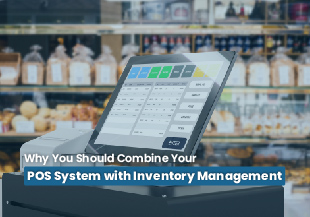
 Chat with Prismatic Bot
Chat with Prismatic Bot